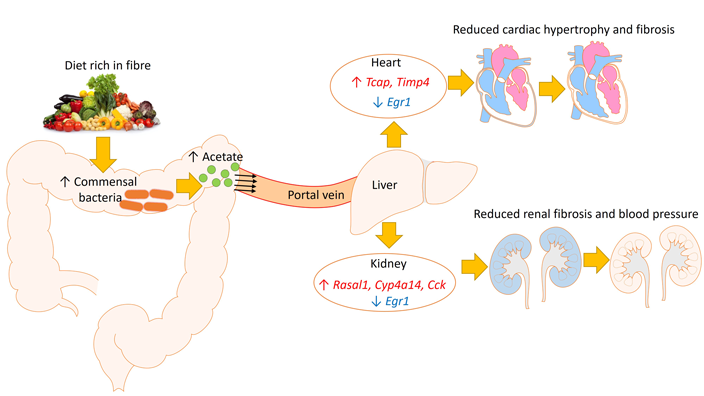Project leader: Dr Francine Marques
External factors such as diet and exercise can result in heritable structural DNA changes (without altering its sequence) — a phenomenon called epigenetics — that can modify gene expression. For example, parental diet, focused mostly on fat and sugar, has been associated with several diseases in the offspring through epigenetic changes. While a healthy diet has proven cardiovascular benefit, the molecular mechanisms involved are yet to be determined.
Our laboratory has shown that diet can offer a strong cardiovascular protection against the development of high blood and heart failure. We now want to determine whether specific aspects of a healthy diet can prevent or ameliorate hypertension and the development of heart failure and fibrosis, and use these new molecules as therapeutic targets.

A summary of findings published in Marques et al. Circulation 2017, where we showed that high dietary intake of fibre modulates the gut microbiota. This leads to transcriptomic changes and an improvement in cardio-renal function through the release of the short-chain fatty acids acetate, proposing a new gut-cardio-renal axis.

